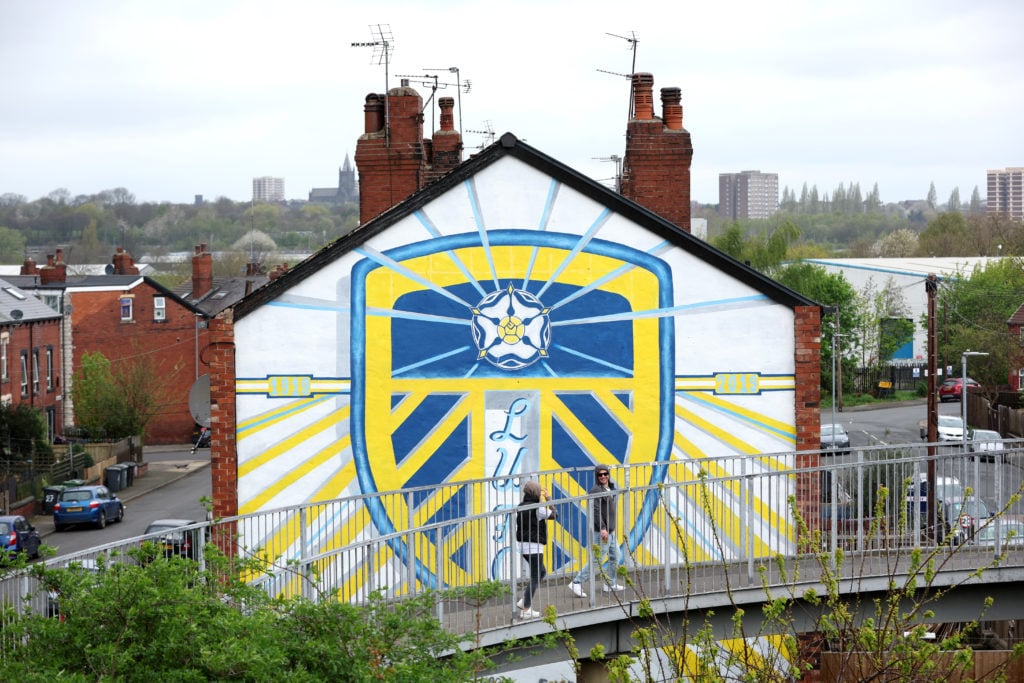Red Bull have 'huge budget' as Leeds United set for £40m cash injection - Kieran Maguire

09/13/2024 12:00 PM
Red Bull’s inherent commercial focus makes them one of the most controversial ownership groups in football and their investment in Leeds United has been met with a mixed reception.
It is not known exactly how much equity the Austrian energy drinks giants bought earlier this summer, although certain outlets in Germany are reporting it is a 10 per cent stake.
Red Bull have since handed Leeds a record-breaking front-of-shirt sponsorship, but many supporters have been disillusioned by what they perceived to be a retreat in the transfer market.
Georginio Rutter, Archie Gray and Crysencio Summerville were among the players sold in a window that Leeds ended with a positive net spend of over £100m.
Red Bull and the San Francisco 49ers, the majority owners of Leeds, knew that some sales were needed to comply with PSR (Profit and Sustainability Rules), but the mass exodus alarmed fans.
And recent developments have left the Elland Road faithful questioning what Red Bull’s long-term ambitions in West Yorkshire really are.
To explore this topic and Leeds’ broader financial situation, TBR Football spoke exclusively to Liverpool University football finance lecturer and Price of Football author Kieran Maguire.
The real reason for Red Bull’s deals with Everton and Newcastle United
Some eyebrows were raised when Newcastle United signed a commercial deal with Red Bull earlier this month.
Then, earlier this week, Red Bull signed yet another commercial deal with a Premier League side, this time Everton.
It is highly unusual for the co-owner of one club to sponsor – and thereby fund – other clubs who could be considered direct rivals.
Asked why this might be motivating Red Bull’s strategy, Maguire said: “Red Bull has a huge marketing budget.
“It spends well into double digits in terms of percentage points on marketing and advertising.
“It will have assessed all of the global markets because it is a global product for industries that it wants to be associated.
“Clearly, it has its European links with RB Leipzig and so on, as well as its connection to Formula One.
“But the Premier League is the crème de la crème in terms of global access to eyeballs.
“It is viewed in 197 different countries and it could be that Red Bull has assessed this and concluded that English football, whether with Leeds in the Championship or Everton and Newcastle in the Premier League, is so important that it has to be in the market if it wants to get is product into the mindsets of consumers.“
The Premier League, the EFL and the Leeds’ parachute payments
Now into their second season in the second tier, Leeds’ parachute payments have fallen compared to the first year.
However, recent reports have suggested that the decrease is not as steep as it has been in previous seasons, with the amount of cash distributed by the Premier League on the up.
Significantly, it has emerged that the independent regulator for English football loathed by Leeds CEO Angus Kinnear could soon have the power to increase parachute payments.
“There is a possibility that the remit of the independent regulator could be expanded and look at issues in terms of parachute payments,” said Maguire.
“My main concern is that, if the regulator looks at parachute payments in isolation of broader distribution issues, it would be a huge negative step.
“This could only be justified if you adjust parachute payments in tandem with a refinancing of wider distribution.
“I suspect Leeds United, given that they are in the second year of their parachute payments and could get £40m this year, are probably ambivalent because their focus will be on getting to the Premier League.
“Once clubs get to the Premier League, they then view the regulator as an interference and a hindrance.”
